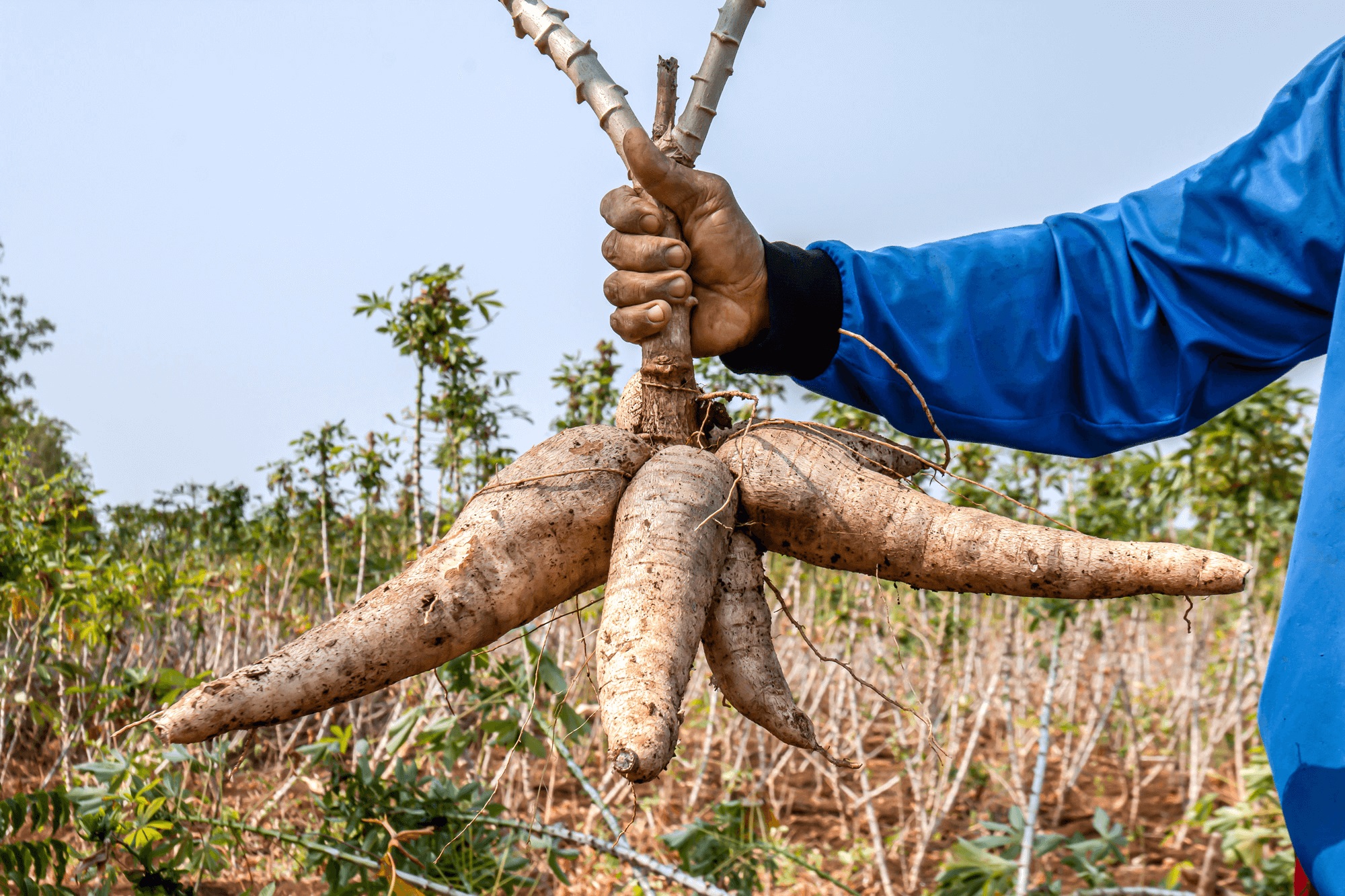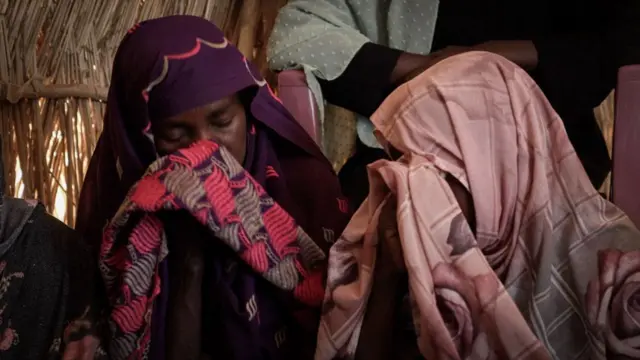By NIKUZE NKUSI Diane
Rwanda Agriculture and Animal Resources Development Board (RAB) says genetically modified cassava seeds are expected to save farmers from losses incurred due to devastating diseases that have been affecting crop production.
Rwandan farmers lack improved cassava varieties resistant to the main cassava diseases; Cassava Brown Streak Disease (CBSD) and Cassava Mosaic Disease (CMD).
The diseases have affected cassava productivity, threatening the income and food security in the country.
Kabore, a cassava virus disease which spread in Rwanda, in 2013, causes root rot rendering cassava inedible.
The devastating disease also harms cassava root (tuber) production, and it is said to be the major cassava threat in East Africa.
The diseases affected the incomes and food security of many people in Rwanda, considering that more than 700,000 families grow cassava in 3,980 villages of Eastern, Western and Southern Provinces, which can produce up to 1.7 million tonnes.
About 200,000 hectares are used for cassava growing in Rwanda where cassava is the third most important crop after bananas and sweet potatoes.
National cassava production dropped from 3.3 million tonnes to 656,924 tonnes in 2013 and 900, 000 tonnes in 2014 due to Kabore.
Cassava is a vital crop in Rwanda where it ranks as the third most consumed staple
According to RAB, agricultural biotechnology will help build resistance to such diseases and increase cassava production.
Some farmers in Ruhango District acquired loans to grow cassava but were plunged into loss by the diseases.
When Emmanuel Habimana invested Rwf12 million in cassava farming, he was expecting to harvest enough and make profits.
In 2012, for instance, he planted cassava on 17 hectares in Kinazi Sector, Ruhango District, but the entire plantation was ravaged by cassava brown streak disease (CBSD), locally known as Kabore, leaving all his ventures in ruins.
The farmer is among many who have been struggling to access improved cassava varieties resistant to the two major destructive diseases – Cassava Brown Streak Disease and Cassava Mosaic Disease (CMD) known as Ububembe which threaten cassava production in the country.
The crisis also affected Kinazi cassava processing factory which is operating at 50 per cent of the capacity production.
As a result, the factory imports some cassava from Tanzania according to Jerome Bizimana, the Acting CEO of Kinazi Cassava Plant.
As a result, the price of cassava flour rose by five times over the past five years.
Athanase Nduwumuremyi, the Coordinator of Roots and Tubers Program at Rwanda Agriculture and Animal Resource Development Board (RAB), said that there are currently confined trials for genetically modified cassava seeds.
The trials started six years ago.
He said that the GM crops have no effect on human being health.
According to World Health Organisation, currently available evidence showed that genetically modified (GM) foods are “not likely to present human health risk”, and that therefore “these foods may be eaten”. She said that Southern African countries should consider accepting GM food aid in the face of the humanitarian crisis facing the region.
Rwanda is also trying GM Irish Potatoes and there are plans for GM maize seeds, he said.
Rwanda, on February 21, 2024, published in its Official Gazette a law governing biosafety, which seeks to ensure that genetically modified organisms (GMOs) are handled, transferred and used safely in the country.
Biotechnology is critical in addressing food and nutrition insecurity in Africa according to agricultural experts.
The success stories of TELA maize and Pod Borer Resistant (PBR) cowpea in some countries illustrate how biotechnology in agriculture can help address farming challenges brought about by the impact of climate change, pest and diseases that have hampered productivity in Africa, they said.
Canisius Kanangire, Executive Director of AATF, noted that the use of biotechnology will help Africa to produce more foods for its ever-growing population that is expected to reach 11 billion people by 2025.
“Efforts to reduce hunger and malnutrition are hindered by low crop productivity, soil degradation, emerging pests and diseases, climate change, and inefficient policy environments,” he said.
He pointed out that crops like Bt (Bacillus thuringiensis) TELA maize, Bt cotton, and PBR cowpea, which are genetically modified to protect against certain pests, reduce the need for chemical pesticides that are harmful to the environment and human health, thus offering solutions to food production challenges.
“To control and manage a devastating Maruca pest on cowpea production in Nigeria, we set up a Private-Public-Partnership that helped to develop a transgenic cowpea variety that is resistant to Maruca vitrata, an insect pest that causes up to 90 percent yield loss in cases of severe infestation for use in three countries of Nigeria, Ghana and Burkina Faso,” he stated.
PBR Cowpea was introduced in Nigeria in 2019, and to date, 126 tons of Bt cowpea seed have been produced and supplied to over 63,000 farmers by seed companies in the country.
Dr. Kanangire further noted that in response to climate change and the damage and loss to stemborer and Fall Army Worm, AATF and its partners developed a transgenic drought-tolerant and insect-protected maize varieties known as TELA maize to enhance food security in Sub-Saharan Africa.
“Since 2016, a cumulative total of 288 tons of TELA certified seed has been sold to smallholder farmers in South Africa, benefiting over 28,000 farmers,” he said, adding that TELA hybrids were successfully launched in Nigeria in June 2024 and already over 2,000 farmers have planted TELA seed for the first time in the country.
“For sustainable commercialisation of biotech products, stewardship must be effectively implemented to maintain the integrity of the products,” he emphasized.
Other notable examples of products developed using biotechnology include herbicide-tolerant crops such as Roundup Ready soybeans and maize modified to tolerate specific herbicides, allowing farmers to use effective weed control methods without harming these crops; and nutrient-enhanced crops such as Golden Rice developed to address nutrient deficiencies, helping to combat vitamin A deficiency.
Founded in 2003 to address Africa’s food security prospects through agricultural technology, AATF believes that the agricultural sector is a key foundational pillar as Africa consolidates its economic growth and carves out its new position as a major global economic powerhouse and the next growth market in the world.
It was formed in response to the need for an effective mechanism that would facilitate and support negotiation for technology access and delivery and formation of appropriate partnerships to manage the development & deployment of innovative technologies for use by smallholder farmers in SSA






